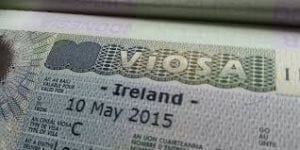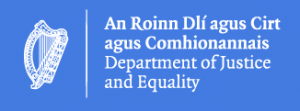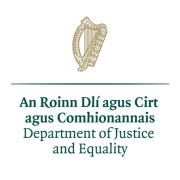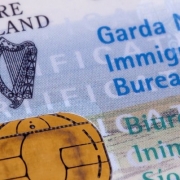Berkeley Solicitors is happy to announce that our clients have obtained a successful decision from the High Court in relation to permitted family members in EU Treaty Rights applications pursuant to Directive 2004/38/EC and the European Communities (Free Movement of Persons) Regulations 2015. Mr Justice Barrett delivered this important judgement on the 26th September 2019.
We believe that this judgment will have an extremely positive impact on permitted family members for such applications.
The case concerned two applicant brothers- ‘Brother A’, a British citizen resident in Ireland for employment purposes and ‘Brother B’, the dependent of Brother A and a Pakistani citizen living in Ireland as a student since 2014.
The High Court found that the Minister’s refusal of the application for an EU residence card for the dependent brother was unreasonable and to some extent irrational, and therefore quashed the Minister’s decision.
The court accepted the applicant’s arguments that Brother B’s country of previous residence is Ireland, contrary to the Minister’s argument that the country of previous residence was Pakistan.
Relying on Rahman, the court reaffirmed that the phrase “in the country from which the person has come” in relation to permitted family members, as appears in both the Directive and the 2015 Regulations, refers to the State he was resident in when he applied to join the Union citizen.
At paragraphs 7 and 8, the court states that:
Although visa applications are typically made outside Ireland, in this instance, Brother B had permission in his own right to reside in Ireland as a student on the date the application was made and therefore the Minister was mistaken in maintaining that Pakistan was the country Brother B came from.
The court further clarified that even in the case of (incorrectly) considering Pakistan as the country from which Brother B had come, Brother A’s actions with respect to housing and financing Brother A’s education in Ireland would remain relevant insofar he was consistently supporting by his brother to the point of dependency.
Mr Justice Barrett specifically addressed the nature of evidence provided in support of EU Treaty Rights Applications referring to the statements made by the applicants. He reaffirmed that when applicants make/sign the declaration for the completion of the EU1A form, certain weight is afforded to the evidence provided in and with the application.
Mr Justice Barrett took a fair and reasonable approach to the provision of documents maintaining that very few people can produce/receive or retain documentation with regards to every aspect of their lives, even in the case of the most important aspects of one’s life.
The Judge remarked that in reality there is a limit to what one applicant can produce in terms of documents.
Mr Justice Barrett went on to provide a summary of the concept for dependency confirming that it means:
15. “that members of the family of a community national… need the material support of that Community national… in order to meet their essential needs in the State of origin of those family members or the State from which they have come at the time when they apply to join the Community national”.
Referencing Kuhn and Ors, Mr Justice Barrett echoed that material support includes financial contribution but does not require that the entirety of the cost of essential needs be covered by person providing support.
This judgement advocates, in light of Article 3(2) of the Citizen’s Right Directive, for a relatively generous test as to what constitutes dependency.
A point that the court felt important to note, was that in a situation where material support is not provided directly to the dependent but to others, the dependent is not precluded from being described as such because dependent relationships can include both direct dependency and/or vicarious dependency.
Specifically addressing the issue of dependency in Pakistan, in paragraph 23, Mr Justice Barrett found the Minister’s assertion that the applicants had not provided evidence that without the small cash transfers, Brother B would not have been able to support himself in Pakistan was unreasonable.
Highlighting that Brother B was unemployed in Pakistan and therefore clearly dependent on someone for his income, the High Court was unable to see in this regard:
23(ii). “how Brother B could prove that if he was not in the position that he found himself to be in, he would still not have been able to support himself; how could he possible demonstrate that?”.
In conclusion, the court granted an order of certiorari which means that the Minister’s refusal of the application as a result of the court’s findings is withdrawn and that the application be reconsidered by the minister.
We believe that this judgement will have a positive effect for other applicants who are permitted family members and awaiting the outcome of their EU residence card applications.
The full judgement will be posted here shortly.









